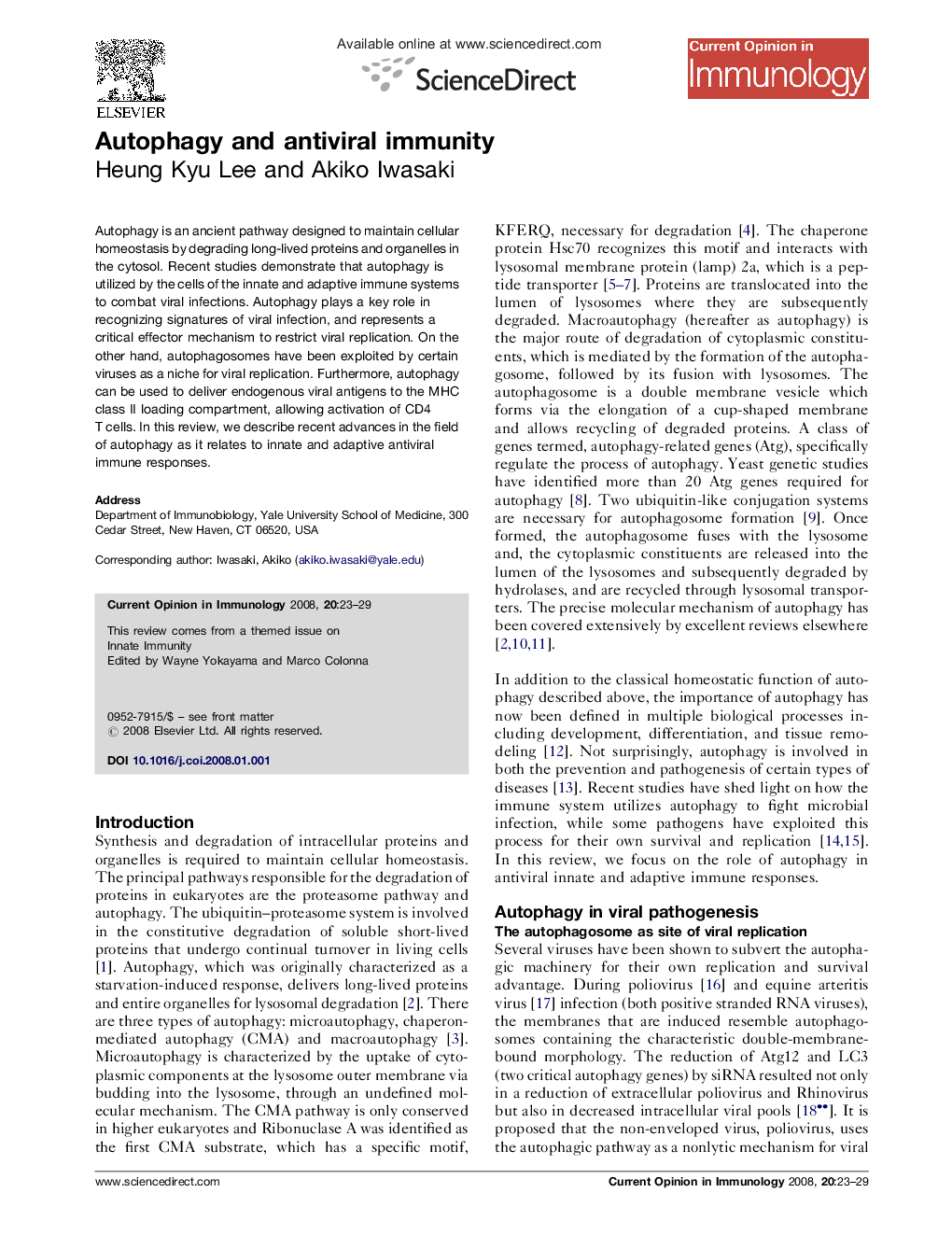| Article ID | Journal | Published Year | Pages | File Type |
|---|---|---|---|---|
| 6115393 | Current Opinion in Immunology | 2008 | 7 Pages |
Abstract
Autophagy is an ancient pathway designed to maintain cellular homeostasis by degrading long-lived proteins and organelles in the cytosol. Recent studies demonstrate that autophagy is utilized by the cells of the innate and adaptive immune systems to combat viral infections. Autophagy plays a key role in recognizing signatures of viral infection, and represents a critical effector mechanism to restrict viral replication. On the other hand, autophagosomes have been exploited by certain viruses as a niche for viral replication. Furthermore, autophagy can be used to deliver endogenous viral antigens to the MHC class II loading compartment, allowing activation of CD4 T cells. In this review, we describe recent advances in the field of autophagy as it relates to innate and adaptive antiviral immune responses.
Related Topics
Life Sciences
Immunology and Microbiology
Immunology
Authors
Heung Kyu Lee, Akiko Iwasaki,
